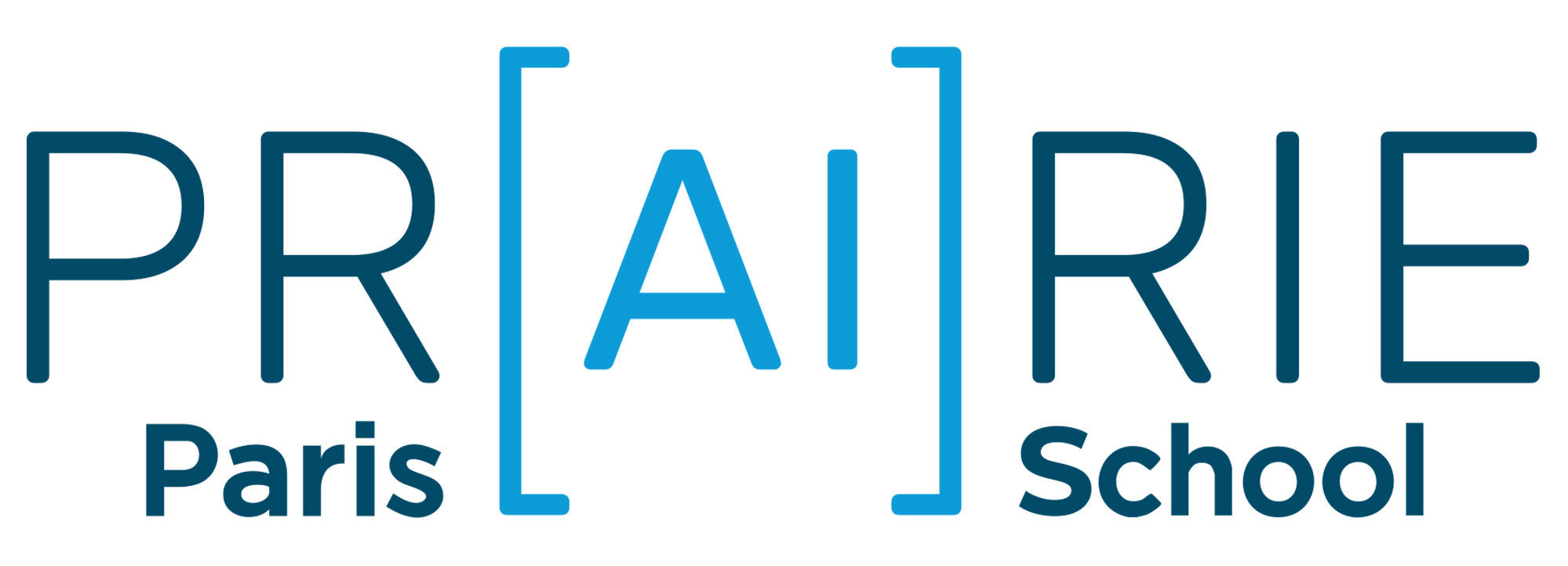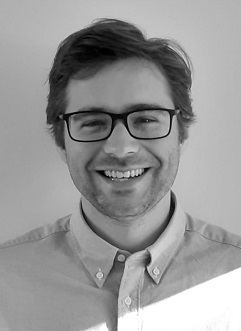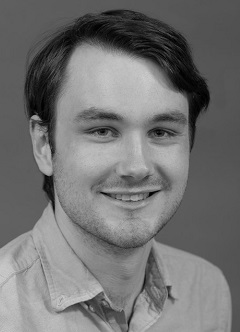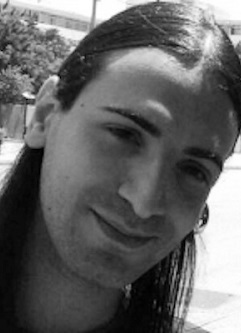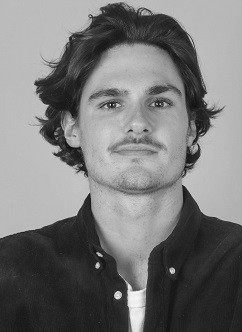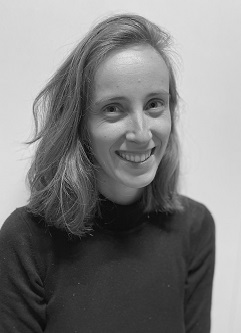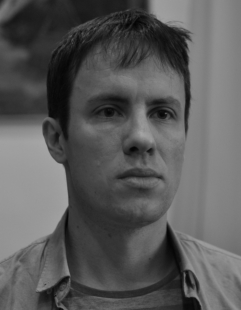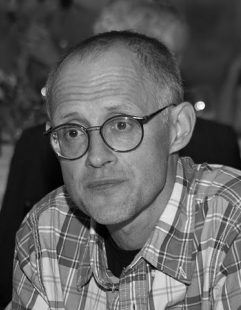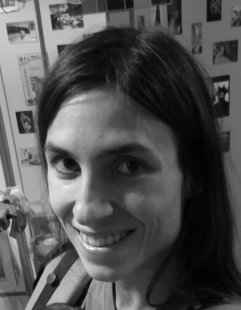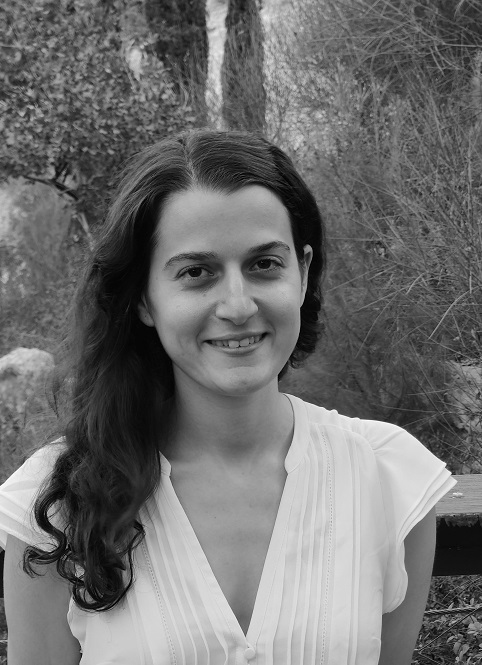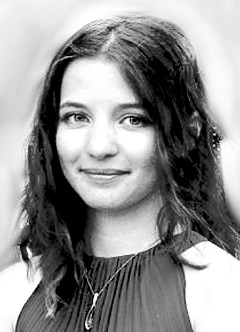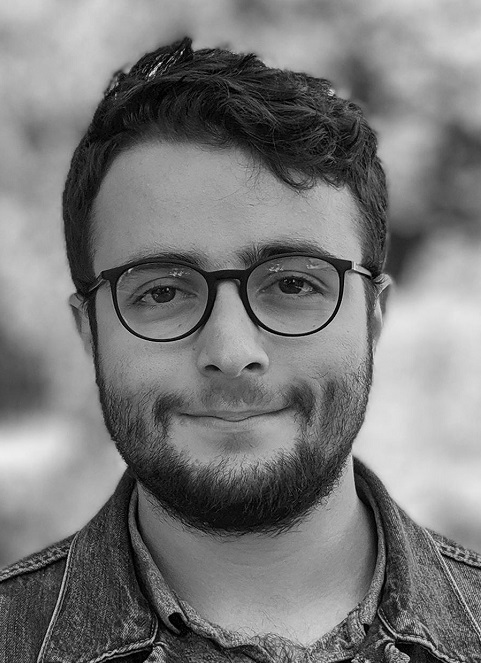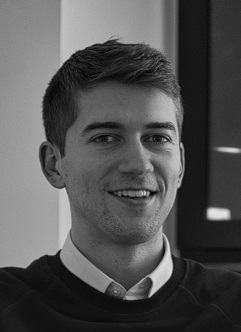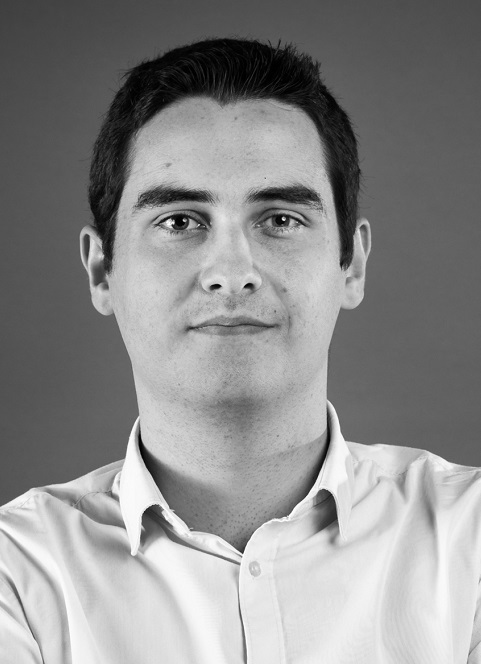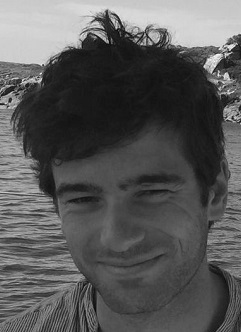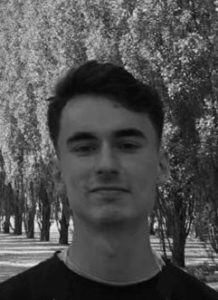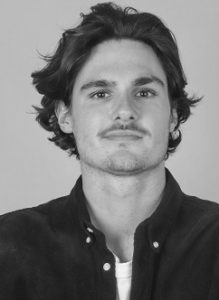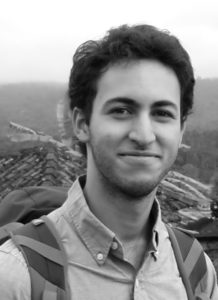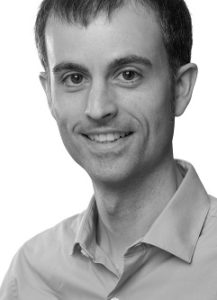Ivan LERNER
ivan.lerner [at] inria.fr
Short bio
- Diplôme d’etude supérieur de Santé Publique, Université Paris Descartes, 2020
- Double-cursus Médecine-sciences, 2016, Université Paris Descartes
- Master 2 de science-cognitives, 2013, École normale supérieure, Paris
Thesis title
Predictive modelling using structure learning to handle distribution shift in Electronic Health Records.
Short abstract
I develop machine learning models tailored to Electronic Health Records, which are multiple multivariate time series, with the particularity of being of mixed type and irregularly sampled. These models are generalized Gaussian Process models, and I write and evaluate kernels that encodes structural assumptions on the data generating process.
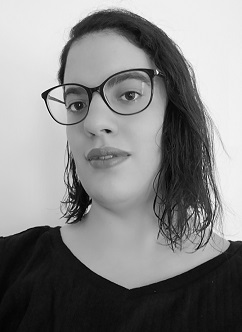
fbtmdn
BOUDABOUS Safa
Université Paris-Dauphine-PSL
safa.boudabous [at] dauphine.psl.eu
Short bio
PhD, Computing, Data and AI, Institut Polytechnique de Paris
Research project
Detection of micro-arousal and desaturation events from heart rate in apneic patients.
Short abstract
We will work on defining a deep learning model for sleep micro-arousal and desaturation events detection from heart rate. As heart rate increase is a characteristic cardiac autonomic response to micro-arousal and desaturation, we will be using heart rate signal as a surrogate to full Polysomnography signals.
SUSMANN Herbert
Université Paris Dauphine-PSL
Herbert.susmann [at] dauphine.psl.eu
Short bio
PhD, Biostatistics, University of Massachusetts Amherst
Research project
Predicting emergency room arrivals in the Île-de-France region.
Short abstract
We are studying the use of modern machine learning techniques to predict arrivals to emergency rooms and subsequent hospitalizations in Île-de-France. We are particularly interested in predictions methods that can provide statistically accurate characterizations of uncertainty.
BACHTIS Dimitrios
École normale supérieure - PSL
dimitrios.bachtis [at] phys.ens.fr
Short bio
PhD, Swansea University
Research project
Machine learning and the renormalization group.
Short abstract
Guided by insights from the theory of disordered systems, and statistical field-theoretic techniques, we aim to further solidify connections between machine learning and the renormalization group. The project will enable us to further our understanding of neural networks and provide machine-learning enhanced
computational advances to problems of physics.
LUCIANO Antoine
antoine.luciano [at] dauphine.psl.eu
Short bio
Master MASH – Université Paris-Dauphine
Thesis title
ABC methods for PDE
ORTHOLAND Juliette
juliette.ortholand [at] icm-institute.org
Short bio
- Master, Sorbonne University
- Engineer, Mines Paristech
Research project
Modelling changes of dynamic over longitudinal data.
Short abstract
The objective is to develop models for longitudinal data and events in the context of neurodegenerative diseases. The models could then be used for prediction and/or for the description of the pathology.
The Data Sciences Group at PRAIRIE is a dedicated team of experts specializing in the field of machine learning and its applications in health sciences and medical imaging. Their primary goal is to advance the theoretical and computational aspects of these domains to tackle complex challenges. The group focuses on developing innovative computational methods that draw upon various fields such as non-convex optimization, optimal transport, Bayesian statistics, and deformable shapes. By integrating these diverse techniques, they aim to create powerful tools that can effectively address the unique demands of health sciences and medical imaging.
On the theoretical front, the group dedicates significant efforts to providing rigorous theoretical guarantees for the convergence of their optimization schemes and the reliability of their sampling strategies. Through an in-depth mathematical modeling and analysis, they derive theoretical bounds and guarantees that provide insights into the behavior and performance of their methods. This ensures that their computational methods are not only effective but also grounded in solid mathematical foundations.
They actively develop efficient computational packages, which are distributed as open-source Python packages. By making their tools openly available, they promote collaboration and encourage the adoption of their approaches across the scientific community. The group’s numerical schemes find extensive application in various areas of medicine and health sciences. For instance, they contribute to statistical estimation problems, including the monitoring of cancer treatments and the analysis of single-cell genomics data. Furthermore, the Data Sciences Group develop state-of-the-art methods for medical imaging problems. One notable area is shape registration for computational anatomy, where they develop advanced algorithms to align and compare anatomical structures accurately.
Short bio
Ingénieur polytechnicien, École polytechnique (Palaiseau)
MPhil in Computational biology, University of Cambridge (UK)
Thesis title
Combine artificial intelligence with high resolution microscopy to better dissect the mechanism of binding and mechanism of action of multi-specific biologics.
Short abstract
Photo-activated localization microscopy (PALM) enables high-resolution recording of single proteins trajectories in live cells, thus providing precious probes of small-scale properties of the protein environment. I use graph neural networks to characterize relevant physical properties of these dynamics, and developed a flexible analysis scheme able to deal both with the diversity of motion types encountered in nature and with the fact that observed trajectories inevitably differ, to some extent, from archetypal theoretic models.
ANDRAL Charly
andral [at] ceremade.dauphine.fr
Short bio
Diplome d’ingénieur – ENSAE Paris
Master Statistics And Machine Learning, Paris Saclay University
Thesis title
Improvement of MCMC methods and adaptation to the Big Data.
Short abstract
MCMC methods can have some difficulties exploring space, especially in high dimensional settings that can occur in a context of Big Data. The goal of my PhD thesis is to find enhancements to MCMC about this exploring issue.
HAIRAULT Adrien
hairault [at] ceremade.dauphine.fr
Short bio
- MSc in Statistical Science, Oxford University
- Double licence M.I.A.S.H.S, Université Paris 1 Panthéon-Sorbonne & SciencesPo Paris
Thesis title
Foundations and applications in Bayesian Mixture Modelling.
Short abstract
Mixtures are a popular class of models bridging parametric and non-parametric statistics and, as part of the standard data analysis toolkit, have ubiquitous applications in regression, clustering, machine learning, etc. One of the main goals of this thesis is to ease model selection within such a class of models, in particular by finding efficient ways of computing the marginal likelihood (aka evidence) of semi-parametric models (such as Dirichlet Process Mixtures). We also study the convergence properties of the Bayes Factor when comparing such parametric and semi-parametric models.
MOREL Rudy
L’Ecole normale supérieure - PSL
Short bio
- MS in Probabilities and Finance (ex DEA El Karoui) from UPMC
- BSc in Mathematics from École Normale Supérieure of Rennes
Thesis title
Modelling of multiple time series with learning of the structure across series.
Short abstract
Many phenomena observed in nature can be described as a collection of time series (component of an audio recording, pixels of a video over time, economic agents of a complex system). The goal of this PhD is to model multiple time series and to learn the structure across series.
FOUCHE Aziz
aziz.fouche [at] curie.fr
Short bio
M2 Bioinformatics & Modelling, Sorbonne Université
Thesis title
Integration of multi-level single cell molecular data to unravel the mechanisms of oncogene activation effect on cellular phenotypes.
Short abstract
We investigate oncogene effects on cancer cells driving the shift from wild-type to malignant phenotype using single-cell data. Getting rid of patient-specific information among several cancer datasets is a crucial consideration to answer this question, as it blurs tumoral signal of interest. Furthermore, developing methods allowing for information integration between several data acquisition techniques (RNA-seq, ATAC-seq…) may yield very insightful and relevant results for investigating systems biology of cancers.
DI FOLCO Cécile
cecile.difolco [at] icm-institute.org
Short bio
- Engineer diploma (AGROPARISTECH)
- Master of Data science («INFORMATIQUE: SYSTEME INTELLIGENTS»-UNIVERSITE PARIS-DAUPHINE)
- Master of Cognitive Sciences (ENS, UNIVERSITE DE PARIS, EHESS)
Research project
Modelling neurodegenerative diseases.
Short abstract
I study the modeling of neurodegenerative diseases’ progression using imaging and clinical data. In particular, I investigate the influence of various cofactors, including genetics, on Parkison’s Disease progression.
CARMELI Nofar
L’Ecole normale supérieure - PSL
Nofar.Carmeli [at] ens.fr
Short bio
- B.Sc. + Master (Technion)
- PhD at Technion
Research project
The fine-grained complexity of database queries.
Short abstract
As data
analytics becomes more widespread and data becomes bigger, so grows the
importance of identifying how fast we can evaluate any given query.
My research
focuses on characterizing the database queries that allow a highly efficient
evaluation in terms of fine-grained complexity.
WALDSPURGER Irène
waldspurger [at] ceremade.dauphine.fr
Short bio
I prepared a PhD at École Normale Supérieure de Paris, on phase retrieval and scattering transforms, under the supervision of Stéphane Mallat. I defended in 2015, then spent one year as a post-doc at MIT, mentored by Philippe Rigollet. Since then, I am a CNRS researcher.
Topics of interest
Non-convex optimization, inverse problems, scattering transform
Project in Prairie
It is known that simple non-convex algorithms can sometimes efficiently solve a priori difficult problems, like phase retrieval. This phenomenon has been rigorously explained under strong statistical assumptions only. I would like to understand better under which circumstances it happens. Another direction of research I would like to pursue is to study the links between the low layers of learned convolutional networks and the scattering transform.
ROBERT Christian
xian [at] ceremade.dauphine.fr / Blog: xianblog.wordpress.com
Short bio
Professor at Université Paris Dauphine since 2000, part-time professor at University of Warwick (Fall 2013- ), fellow of the ASA (2012) and the IMS (1996), former editor of the Journal of the Royal Statistical Society (2006-2010) and deputy editor of Biometrika (2018-), senior member of Institut Universitaire de France (2010-2021)
Topics of interest
Foundations of Bayesian analysis, Bayesian decision theory, Markov chain simulation methods, approximate Bayesian inference
Project in Prairie
To assess and improve approximate inference methods that handle complex and big data models, in particular developing novel ABC and MCMC technology. Contribution to the PSL maths graduate school by teaching and administrating the MASH program. Animation of international conferences and summer schools in Bayesian computational statistics.
Quote
Christian Robert travaille depuis une quinzaine d’années sur les méthodes d’inférence bayésienne approximatives, induites par la complexité ou la taille des données. Ses résultats valident des méthodes de Monte Carlo sur des modèles génératifs et aident à la construction de techniques de réduction de dimension efficaces.
Team
HAIRAULT Adrien
PhD student
MSc in Statistical Science, Oxford University
Double licence M.I.A.S.H.S, Université Paris 1 Panthéon-Sorbonne & SciencesPo Paris
LUCIANO Antoine
PhD student
Master MASH – Université Paris-Dauphine
PEYRÉ Gabriel
gabriel.peyre [at] ens.fr
Short bio
CNRS research director and professor at Ecole Normale Supérieure. Director of the data sciences center of the ENS. Blaise Pascal Prize 2017 of Académie des sciences, Magenes prize 2019 from the UMI. ERC starting grant 2012, ERC consolidator grant 2017.
Topics of interest
Optimal transport, imaging sciences, machine learning
Project in Prairie
The goal of my research project is to scale Optimal Transport methods both computationally and statistically to handle high dimensional machine learning problems. As deputy scientific director of PRAIRIE, I help to coordinate the research and teaching effort of the project. I am also be involved through my chair in fundamental and collaborative researches, as well as in teaching and dissemination of research.
Quote
Optimal transport (OT) is a fundamental mathematical theory at the interface between optimization, partial differential equations and probability. It has recently emerged as an important tool to tackle a surprisingly large range of problems in data sciences, such as shape registration in medical imaging, structured prediction problems in supervised learning and training deep generative networks.
Team
SEBBOUH Othmane
PhD student
TRIGG Scott
Postdoctoral researcher
MA (Mathematics), MA (History of Science), PhD (History of Science), University of Wisconsin-Madison
